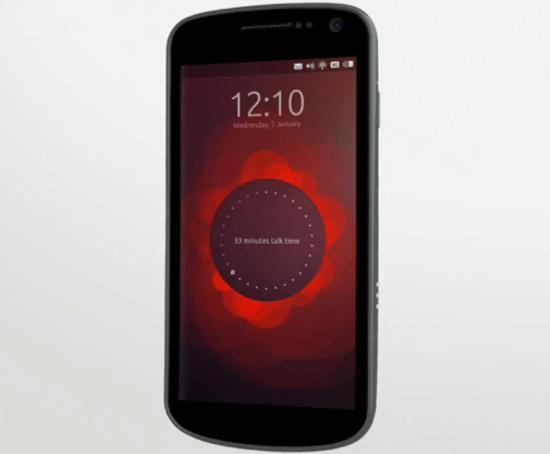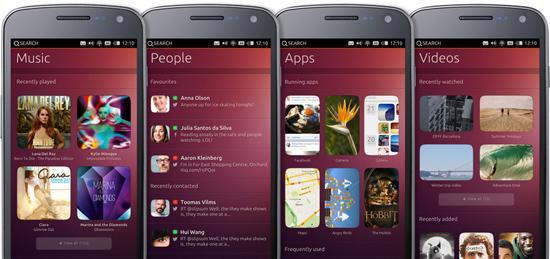
We've got a new operating system to keep track of today, as Canonical has officially introduced a version of its Ubuntu computer operating system for mobile phones. The new OS supports both ARM and x86 processors and, according to The Verge, is built around Android kernels and drivers. In fact, it's expected that manufacturers could load the Ubuntu mobile OS onto an existing Android handset with little extra legwork needed.
One of the main features of the Ubuntu OS itself is what's described as "Edge magic," which allows users to do things like access content and switch between apps quickly using thumb gestures in all four corners of a device's screen. For example, swiping from the left side of the welcome screen will bring up a list of the user's favorite apps. The OS's home screen can be accessed by selecting a button in this panel. The default items on a user's home screen include recently used apps and your recently contacted people.
Sliding down on the home screen will present users with a global search box, which will present users with apps and content either on the phone or online. Other features named by Canonical include voice and text commands in any app, a more immersive experience with content that's brought about by only making controls appear when they're wanted, support for native and web/HTML5 apps and "evolving personalised art on the welcome screen."
There's been no manufacturer or carrier support announced for smartphone flavor of Ubuntu quite yet, interested users will be able to download the development platform for the Samsung Galaxy Nexus sometime in the coming weeks. Official Ubuntu-powered smartphones are expected to be released in early 2014.
Ubuntu's OS for phones looks to be shaping up nicely so far. Like some other mobile OSes we've seen as of late, one of the main focuses of Ubuntu for phones is gestures, which will help users to get around this new OS. It'll be interesting to see what kind of hardware Ubuntu ends up appearing on next year, but the good news is that with downloadable images and support for the Galaxy Nexus, we won't have to wait that long to see how Ubuntu for phones handles for ourselves. What do you all make of this new flavor of Ubuntu? How do you think it'll perform in the ever-growing world of mobile?
